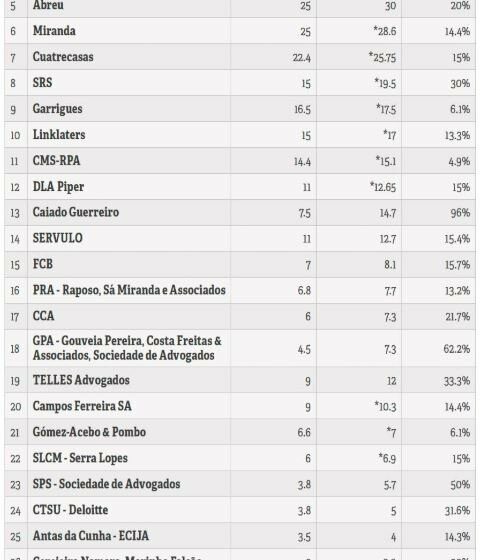Joaquín Ruiz Echauri: “The real challenge is reconstruction”

On June 2, we knew that Joaquín Ruiz Echauri had been re-elected as a member of the Hogan Lovells Global Board, a firm whose turnover grew by 9% in 2019, reaching €46 million in Spain

Proof of Hogan Lovells good progress is that, just when the pandemic was beginning to strike hard in our country, on March 17, Iberian Lawyer echoed the advice of this firm to Allianz X, the digital investment unit of the Allianz Group, in a majority investment in ControlExpert with a cross-border team that included the team from the Madrid office. Cross-border operations, with multi-jurisdictional teams, have been the keynote of this period of health crisis. We talked about this and other issues with the Insurance and Reinsurance area head partner in Spain, Joaquín Ruiz Echauri (pictured), an area which in 2019 accounted for around 20% of the Madrid office’s total turnover.
It is striking that, during the last months of the health crisis, a significant number of the operations that have taken place have been of an international nature, with cross-border, multidisciplinary teams and where several offices have even intervened in unison. What has Hogan Lovells’ experience been in this regard? What is its analysis of the most outstanding operations that have taken place in this period and what is its prediction for the coming months?
I think we need to do a double reading: on the positive side, we have learned that, as important as face to face, personal contact and being able to negotiate by bringing people together in the same space, it is perfectly possible, even in our culture, to achieve the same progress and understanding at a distance; on the negative side, the truth is that most of the cases we have seen correspond to operations initiated prior to the start of the confinement, and the situation has undoubtedly affected the assessment of businesses and possibilities that under normal circumstances would have resulted in agreements that are now dormant, postponed or even abandoned.
Our own team has not stopped despite the pandemic, and the formalisation of the bancassurance alliance between Allianz and BBVA has been an example of making possible, in a great teamwork with all the participants, what in mid-March might have seemed impossible.
I think that, if we rule out a great virulence outbreak, from September onwards we will see a progressive rebound in transactional work, with a recovery at higher than normal levels during the first half of 2021.
During this time, governments have, to a greater or lesser extent, taken actions that some call interventionist and others protectionist in order to safeguard their respective economies. Taking advantage of your international vision, how do you assess the different approaches that have been taken in Europe to deal with the economic crisis caused by the pandemic?
We may or may not demonise interventionism and protectionism, but the truth is that, in a polarised world with multiple conflicts and tensions, it is absolutely impossible to navigate against the tide. The 2020 crisis showed that absolutely all governments, of whatever political side, have been aware of the 2009 crisis and have chosen to act to relieve citizens of the worst immediate consequences of this terrible situation. The real challenge is not to put the bandages on, but to heal the wound, and it is in that, in reconstruction, that the real difference between countries and approaches will be seen. I believe that seeing or re-seeing healthy public accounts, long-term strategic investments, and structural modifications, is going to be something that is going to cost us a great deal of time. It is unnecessary to say that those who simplify the discourse by referring to the need to “re-industrialise” countries that have derived their economy to services are mistaken. If this reindustrialisation is thinking of what Spain was like in the 20th century 70s, it is certainly not: it is a different matter if a commitment to technification and communication technologies can put Spain on the map of the digital economies that do count in the world.
In line with this answer, do you think that in Europe there are different speeds around the degree of innovation of the Administration of Justice? How do you assess the role of Spain and Portugal in this context compared to other jurisdictions? What are, in your opinion, the main handicaps of a utopian Administration of digital Justice at the European level?
Although there may be differences according to the magnitude taken, a mere reading of the latest European Union Justice Scoreboards, prepared by the European Commission, shows that both countries are not at the forefront and, in some cases, are in the tail end. However, legal security, despite the siege of populism, parallel trials and political tension, is still perceived as a value of both States. In my view, what we are suffering from is not so much reform of the system as means. There is no point in having a new law on criminal prosecution if taking of statements from those under investigation continues to be, in many cases, a mockery of nineteenth-century processes; there is no point in having good quality trials and rulings if any small obstacle means weeks, months or years of delay. I believe that the Administration of Justice should ask itself the same question as many companies: do we need so much space in courts when we cannot provide efficient and quick justice? This is perhaps one of the clearest cases of the need to reduce physical presence in order, with the savings generated, to underpin cutting-edge telematic justice in Europe.
Also more fundamental, day after day, is the relationship and business development with LatAm. You are experts in this area. What sectors or industries are developing the most significant activity in this area with respect to Iberia? Within Latin America, which regions are the focus of large operations in your opinion?
In recent years, Brazil was seen as the main focus of M&A activity, and it is precisely for this reason that we must now be cautious. The way in which the Bolsonaro government is dealing with COVID-19 leaves a tremendous question mark as to when we can expect a recovery in activity levels similar to those experienced in 2019 or the start of 2020. Another reason for caution is that the traditional role of the financial sector in transactional activity in Latin America calls for a certain impasse until the post-crisis market reordering becomes clear. However, all this can be compensated by the radical transformation of the consumer industry to the digital age, an area in which one can almost speak of a collective enthusiasm in the urban communities of almost all jurisdictions in Latin America. This heightened interest may revolutionise M&A in the region, not only in Brazil and Mexico, but also in Argentina, Chile, Colombia and other economies in the area.
Finally, how do you see the present/future of companies (small/medium/large) in Iberia and how do you see that of the law firms in particular?
As far as companies are concerned, it is easy to predict some consequences of the great transformation brought about by the coronavirus crisis. Telework, the boom in services provided in our homes, is bringing about a new society, less squeezed in crowded urban centres, less focused on a daily pilgrimage to work, and more focused on achieving results than on workplace presence. Office space will continue to exist, even in services, but the shift to a new reality that favours flexibility will lead to changes in habits and approaches, including in business. The Real Estate or Financial world must be reinvented. If only a few years ago we did not understand a town without a bank branch, it may be that soon we will not understand a town without the presence of professionals who work in remote matters enjoying the advantages of a privileged environment.
This transformation will also affect law firms. I believe that remote work and flexibility are essential in a world where work-family balancing and guaranteeing the well-being of our lawyers is essential. I do not believe that the crisis affects how we provide our advice, nor that it has any influence on whether it should be specialised, client-oriented, efficient, in short, but it does affect how we act in our day-to-day work and how we train and retain talent. In the same way that the University is trying to adapt to remote education, we must adapt to being able to form and amalgamate teams and lawyers in an environment where flexibility, remoteness and the virtual acquire strength and validity.
To read the article in full please download issue N.96 here












